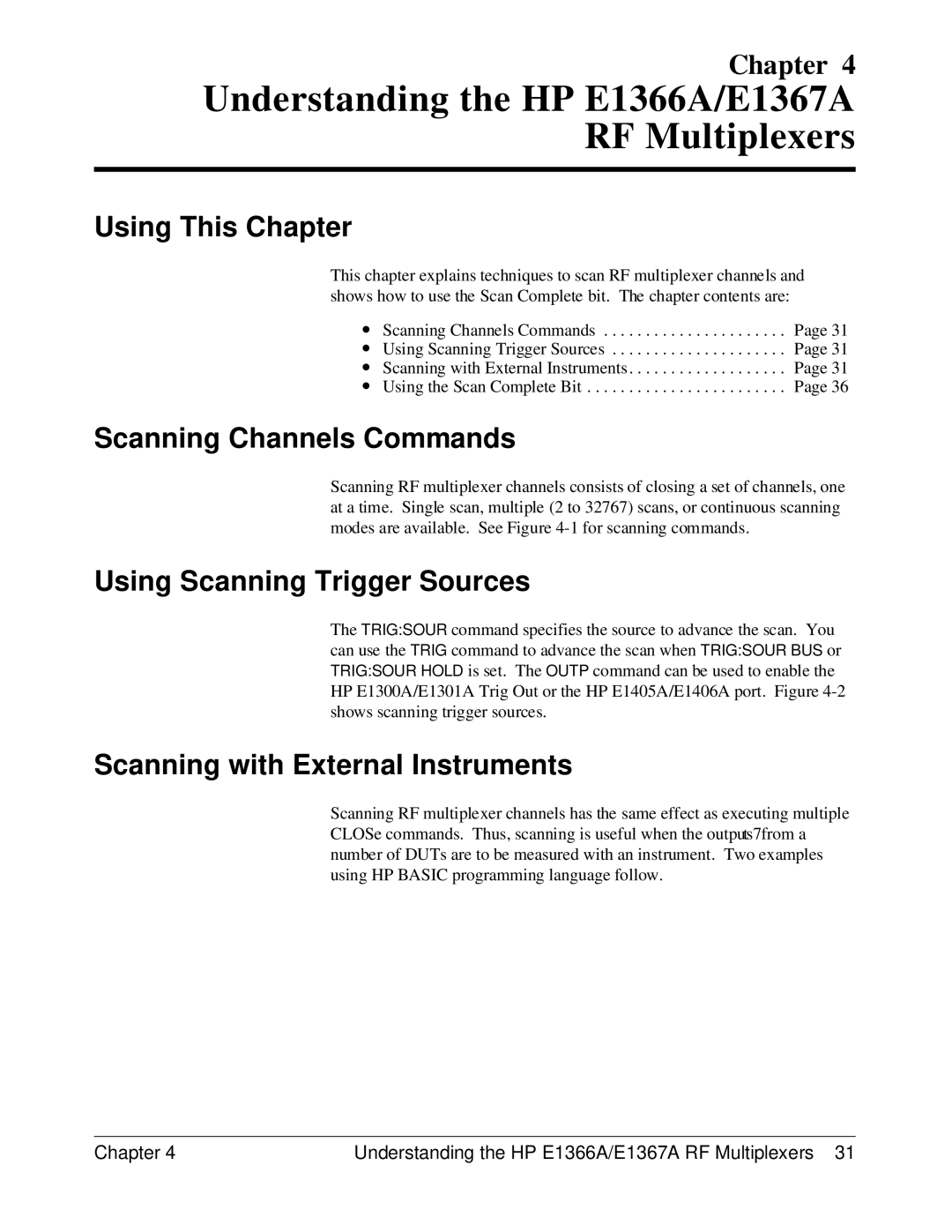
Chapter 4
Understanding the HP E1366A/E1367A RF Multiplexers
Using This Chapter
This chapter explains techniques to scan RF multiplexer channels and shows how to use the Scan Complete bit. The chapter contents are:
∙ | Scanning Channels Commands | Page 31 |
∙ | Using Scanning Trigger Sources | Page 31 |
∙ Scanning with External Instruments | Page 31 | |
∙ | Using the Scan Complete Bit | Page 36 |
Scanning Channels Commands
Scanning RF multiplexer channels consists of closing a set of channels, one at a time. Single scan, multiple (2 to 32767) scans, or continuous scanning modes are available. See Figure
Using Scanning Trigger Sources
The TRIG:SOUR command specifies the source to advance the scan. You can use the TRIG command to advance the scan when TRIG:SOUR BUS or TRIG:SOUR HOLD is set. The OUTP command can be used to enable the HP E1300A/E1301A Trig Out or the HP E1405A/E1406A port. Figure
Scanning with External Instruments
Scanning RF multiplexer channels has the same effect as executing multiple CLOSe commands. Thus, scanning is useful when the outputs7from a number of DUTs are to be measured with an instrument. Two examples using HP BASIC programming language follow.
Chapter 4 | Understanding the HP E1366A/E1367A RF Multiplexers 31 |
